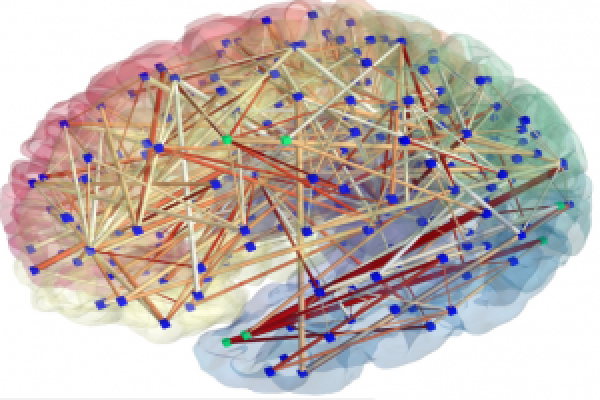Schizophrenia affects whole-brain connectivity, major study finds
In the largest study of its kind to date, 160 scientists from 27 institutions worldwide set out to examine how schizophrenia affects the brain's white matter, which is the fatty substance found in the deep tissues of the brain.
In the largest study of its kind to date, 160 scientists from 27 institutions worldwide set out to examine how schizophrenia affects the brain's white matter, which is the fatty substance found in the deep tissues of the brain.
To this end, the researchers examined the data available on almost 2,000 people with schizophrenia, comparing them with data on more than 2,300 healthy controls.
Researchers looked at the brain's white matter, which can be found in the subcortical areas of the brain. White matter contains nerve fibers, which it protects by keeping them in a myelin sheath.
White matter is also responsible for improving the communication between neurons, making it speedier and more efficient.
The data for the new study were collected from 29 existing studies conducted by the Enhancing Neuro Imaging Genetics through Meta Analysis (ENIGMA) global consortium.
ENIGMA is led by Paul Thompson, of the Imaging Genetics Center at the Institute for Neuroimaging and Informatics in the Keck School of Medicine, which is part of the University of Southern California (USC), Los Angeles.
Neda Jahanshad, who is an assistant professor of neurology at the Imaging Genetics Center within the USC's Neuroimaging and Informatics Institute, co-led the study together with Sinead Kelly, who is a researcher at the USC's Neuroimaging and Informatics Institute in the Keck School of Medicine.
Kelly is also the first author of the paper, which was published in the journal Molecular Psychiatry.
'A disorder of global brain connectivity'
Kelly and her colleagues used data obtained using diffusion tensor imaging, which is a type of magnetic resonance neuroimaging that enables researchers to estimate the location and orientation of the brain's white matter fibers.
Diffusion tensor imaging works by tracking the movement of water molecules in the brain's white matter.
The study found that the brain's entire communication system — and not just isolated areas — seems to be disrupted in schizophrenia.
In the authors' words, schizophrenia may be "a disorder of global brain structural connectivity."
Sinead Kelly:
We can definitively say for the first time that schizophrenia is a disorder where white matter wiring is frayed throughout the brain."
However, two brain areas were found to be affected more than others. One is a brain region known as the corpus callosum, which enables the two hemispheres to communicate with one another, and the other is the frontal part of the so-called corona radiata, which is a brain region key for processing information.
To the authors' knowledge, this is the largest ever study of schizophrenia and the brain's white matter.
Significance of the study
The research challenges the existing consensus, which posited that schizophrenia occurs because of disruptions that arise exclusively in the prefrontal and temporal lobes. These are brain regions known to regulate personality, decision-making, and auditory perception.
Prof. Neda Jahanshad:
"Without this study, future research could have been misdirected [...] Rather than looking for genes that affect a certain 'stretch of wiring,' scientists will now look for genes that affect the brain's entire communication infrastructure."
"We're showing that just studying a single brain region to try to find out what causes schizophrenia is not a good approach," she continues.
"The effect is global. Focusing on a certain part of the brain where you think that effect will be is not going to give you the whole story."
"Our study," says Kelly, "will help improve the understanding of the mechanisms behind schizophrenia, a mental illness that — left untreated — often leads to unemployment, homelessness, substance abuse, and even suicide."
In fact, the United States Department of Housing and Urban Development estimate that 26 percent of all the homeless people staying in a shelter live with a "serious mental illness such as schizophrenia."
Also, the National Institute of Mental Health say that 1.1 percent of U.S. adults have schizophrenia. Current treatment options are limited, as the causes of schizophrenia are unknown.
"These findings," adds Kelly, "could lead to the identification of biomarkers that enable researchers to test patients' response[s] to schizophrenia treatment."
Next steps stemming from this research include examining the causes for the observations noted in this study. Kelly notes the hereditary aspect of the disease, suggesting that specific genes could alter the entire brain's wiring.



.jpg)

Related Posts